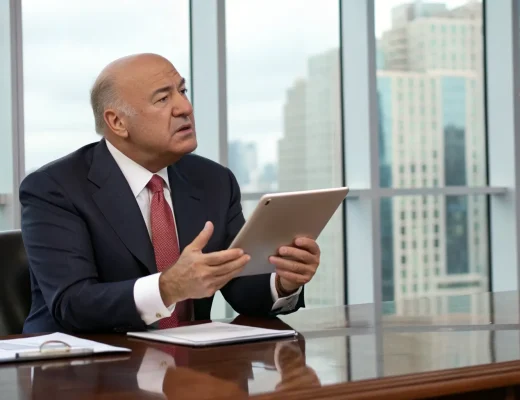
The Senate narrowly passed President Donald Trump’s tax-and-spending bill with a vote of 51-50, with Vice President JD Vance casting the tiebreaker. The bill now returns to the House for final approval before the July 4 deadline. Wall Street is closely monitoring President Trump’s recently proposed spending bill, according to market analysts and experts.
Dom Chu discussed the financial sector’s response on Morning Joe, noting cautious optimism mixed with a degree of uncertainty. The bill, which has sparked intense debate in Congress, proposes significant tax cuts that predominantly benefit the wealthiest Americans. These tax breaks are seen by some Wall Street investors as a boost to financial markets, potentially increasing disposable income for high-net-worth individuals and stimulating investment activity.
However, the bill’s implications extend beyond tax policy. House Democratic Leader Hakeem Jeffries criticized the proposed legislation, suggesting it would drastically restructure Medicaid, resulting in widespread reductions in healthcare coverage. “I will take my sweet time ripping Trump’s bill apart,” Jeffries vowed during the final House vote.
Several state governors have voiced their concerns. One red state governor described the potential loss of healthcare for 200,000 residents as “devastating,” while a Maryland governor labeled the budget bill a “nightmare for working families.” These comments reflect a broader fear that the cuts will harm vulnerable populations. Financial experts worry that the bill’s provisions are too vague, which could lead to instability.
Former U.S. Attorney Joyce Vance mentioned, “Vagueness over who qualifies for tax breaks and cuts adds to the uncertainty for both businesses and individuals.”
In contrast, Claire McCaskill emphasized the priority given to tax breaks for the wealthy. Critics argue this approach will deepen economic inequality and place further strain on the middle and working classes. Despite partisan standoffs, Rep.
Don Bacon, a GOP Trump critic, explained his vote for the bill, stating his intent to consider both sides of the argument.
Previous Post
How to Structure Your First 10 Enterprise Deals
Next Post






